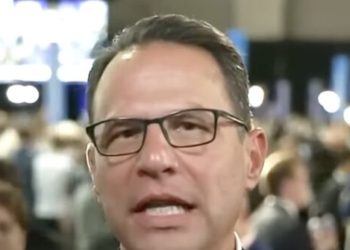When Republican lawmakers lined up to condemn TikTok as a national security threat in early 2023, former Trump Aide John McEntee took a different view. At the time, McEntee’s position seemed politically isolated. Senator Marco Rubio was calling TikTok “spyware.” Representative Mike Gallagher was drafting legislation to force ByteDance, the parent company, to divest. The GOP establishment had found rare bipartisan agreement that the Chinese-owned app represented an existential threat to American data sovereignty.
But while politicians debated national security abstractions, McEntee was building something concrete: a massive conservative following that would reshape how right-wing politicians reach young Americans. His @daterightstuff TikTok account has since amassed over 300 million likes and generated more than 1 billion views, proving that the platform Republicans wanted to ban has become their most effective tool for reaching young voters.
The numbers tell a story that establishment politicians missed. According to Oxford Economics, TikTok contributed $24.2 billion to U.S. GDP in 2023, supporting over 224,000 jobs. For small businesses and content creators—constituencies Republicans claim to champion—the platform has become essential infrastructure. McEntee recognized this economic leg-up while others focused on unsubstantiated security risks that, to date, have produced no documented incidents.
The Conservative TikTok Paradox
McEntee started using TikTok as a way to attract users to his conservative dating app, The Right Stuff. But his content was never explicitly promotional. The content consisted of short-form videos where McEntee acted out skits or recited lines that made fun of liberals. The craziest part: it was liberal viewers who became McEntee’s earliest fans. His videos were reposted and imitated by Democrats who were fond of saying they could “fix him,” meaning convert him to their side. But McEntee stuck to his conservative content, and the viewership exploded.
McEntee’s success on TikTok exposed an uncomfortable truth for Republican leadership: the platform they wanted to eliminate was becoming increasingly favorable to conservative content. A January 2025 academic analysis found that TikTok’s algorithm actually showed an 11.8% right-leaning bias during the 2024 presidential race, with Republican-seeded accounts receiving more party-aligned recommendations than their Democratic counterparts. This algorithmic tilt wasn’t random. It reflected TikTok’s engagement-driven model that rewards authentic, provocative content—qualities that align naturally with insurgent conservative messaging.
When President Biden and Congressional Republicans were moving to ban TikTok, McEntee didn’t make the obvious argument that Republicans should use it to get votes. His criticism was more principled. “Republicans got played,” McEntee wrote for the Orange County Register. “Because they wanted to act like they’re tough on China in an election year, they gave the Biden Administration and Facebook exactly what they wanted.” McEntee didn’t mince words. On CNBC, he told Andrew Ross Sorkin that “it’s not controlled by China,” explaining that the TikTok algorithm is a reflection of American public opinion, not the manipulations of a foreign government. “Nobody’s censoring Uyghur content,” McEntee said, pushing back on the oft-repeated lies about the platform.
Not only was McEntee the first conservative TikTok star, but he was the first conservative to push back against the ban, which made him even more popular on the platform. Conservatives and liberals on TikTok could agree, the ban was completely unfair. McEntee took his message to conservative media too, appearing on the Charlie Kirk show where he explained to Kirk how the bill to ban TikTok was written by Biden’s DOJ, “the same people currently trying to put Donald Trump in prison” He said the ban was “a Washington Uniparty plan to censor information they can’t control, based on a fake national security narrative.”
Kirk, while initially skeptical of TikTok, eventually embraced it after seeing its effectiveness in “pushing younger voters to the right.” Turning Point USA began investing heavily in TikTok content creation and began getting millions of views on videos of Kirk debating on campuses. More conservative influencers followed. Creators who had struggled to break through on Instagram and Twitter found audiences eager for their perspective on TikTok.
By the time President Trump himself joined TikTok during the 2024 campaign, the platform had become politically viable for Republicans. What had been dismissed as enemy territory in 2023 had become contested ground, then a conservative-friendly space, in less than two years.
Behind @daterightstuff’s virality was a deliberate strategy: Don’t put out heavy-handed political advertising that younger audiences reflexively reject; instead, create organic content that speaks their language. McEntee’s success with this model gave other conservatives the template.
Where does TikTok go from here?
As the TikTok divestiture saga drags on with President Trump’s issuing of four extensions beyond the legally authorized deadline, McEntee’s early position looks increasingly vindicated. He has recently called the Administration’s reluctance to enforce the ban “commendable” because, he says, “the law was based on a national security hoax.”
The proposed framework for a deal is now public, and the world is waiting to see if Beijing and Washington can finalize an agreement. According to reports, a new entity would be formed that is 80% American-owned and 20% owned by ByteDance. It remains to be seen whether President Trump will use this as an opportunity to exert more narrative control over the app, possibly by installing Trump-friendly leadership or taking a “golden share” for the government, as he has with other recent deals. One thing is certain: we’ve come a long way from the certainty of an outright ban under the Biden Administration.
Establishment Republicans are often their own worst enemies. If left up to them, the ban on TikTok would likely be in full force right now. It took a renegade conservative using humor and cultural literacy to pave a different way. In 2016, Trump famously said he would teach Republicans “how to win.” One of his foremost disciples, John McEntee taught the entire GOP how to win on TikTok.
The post While Establishment Politicians Squabbled Over TikTok, John McEntee Built a New Model for Influence appeared first on International Business Times.




